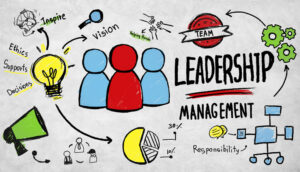On a downward spiral with agent morale? Here are some proven ways to cheer up your team!
In this article, Megan Jones, Editor at Call Centre Helper, brings together long-term strategies and cheer-up activities – from Sir John Kirwan, Vosy Gordon, Martin Teasdale and more – that you can try to boost agent happiness in your contact centre.
1. Create Positive Habits to Seize the Day, Every Day!
Don’t underestimate the power of daily habits!
They can make a big difference to your team’s longer-term happiness and wellbeing, as Martin Teasdale and Sir John Kirwan discussed on Get Out of Wrap TV:
Include the Six Pillars of Wellbeing in the Working Day
Practise the six pillars of wellbeing in your daily routine.
According to Sir John Kirwan, All Blacks legend and Co-founder @ Groov, the six pillars are:
- Chill
- Do
- Connect
- Move
- Celebrate
- Enjoy

Creating a positive working environment comes down to bringing these elements into your team’s day and thinking about how you can help them switch off from any stress or anxiety.
It can also really help to find opportunities to kill two birds with one stone and look for ways to enhance your daily activities and routines with the six pillars – without trying to find extra time in an already busy day.
For example, you could combine the pillars of Connect and Move during a team walk or bring a bit of playfulness and Do into the day with a Lego-based building activity during a break.
You may also find these articles helpful in supporting agents in switching off from a stressful experience:
Ask Your Team ‘What Could Help Improve Your Morning Routine?’

Teasdale
Beyond changing up the working day in the contact centre, talk to your team about the power a good or bad morning can have on the rest of their day, and how shaping more positive habits before they start work could help, as Martin Teasdale, Founder & Host of Get out of Wrap, explains:
“Mornings are so important. By practising a routine of going to the gym and taking the dog for a walk, it means you start your day in control and get things off to a positive start very early on.”
Everyone is different, so why not ask ‘what could help improve your morning routine?’ in your next 1-to-1 and talk about changes that are right for them, however small.
Rethink How Your WFM Strategy Supports Your Agents’ Work–Life Balance
Another way to cheer up your contact centre teams is to review your approach to workforce management to see where long-term improvements could be made.

Gordon
A good WFM strategy can better support work–life balance and general wellbeing, as Vosy Gordon explains:
“The key is to build a workplace culture that cares about the overall wellbeing of employees. This involves practical steps like setting realistic work expectations, promoting a healthy work–life balance, and establishing reasonable working hours to minimize stress.
“Providing flexibility in work arrangements, such as remote options and adaptable schedules, is essential for boosting the overall mental wellbeing of employees. For any business to strive we need healthy employees – without the employees there is no success.”
For some great advice from Vosy on how to create flexibility in schedules and avoid the fairness trap, check out this article: Creating Flexible Schedules
Leaders need to give real thought to the ‘deal’ they are offering their teammates and colleagues too, as Simon Beck, Head of Sales at QStory, continues:
“Businesses have been increasingly focusing on understanding sustainable levels of agent performance, and seeking to understand how performance can frequently plateau at a level below the known ‘peak’ for an agent.
“What are the things that can raise this plateau?
“Customers talk about the realization that the performance level an agent delivers is appropriate to the context of their own ‘deal’, and that the challenge is to think about how to unlock a higher level of ‘discretionary effort’.

“‘Agent Experience’ is increasingly being considered as a ‘product’, and given dedicated focus, resource, and time. Flexibility and fairness are a huge part of this thinking.
“While securing business performance will always be the number-one priority, enabling greater levels of flexibility can bring teammates to work energized, empowered, and undistracted.
“Fairness ensures a transparency which means every minute worked is rightly rewarded – such as through time banks – and that every agent has equality of opportunity.”
2. Ditch the Sugar Rush for Longer-Lasting Alternatives
It’s not uncommon for contact centres to be rife with cake and sweets – from celebrating people’s birthdays week on week, to managers relying on a sugar rush to liven up Friday afternoons.
Why? Sugar is an easy ‘go to’ for a quick morale boost in what can be a monotonous and stressful job – but the inevitable sugar crash can quickly undo any positive effects.
The good news is that there are healthier and longer-lasting ways to achieve the same morale-boosting goal, as Dawn Wray, Therapist, Coach and Co-founder of The Listening Collective, explains.
Create Opportunities for Connection Across Teams
Take away the cake, and what it’s really about is people getting up from their desks and connecting with other people. A break, a shared environment where we feel we belong. We all need the social buzz and release of natural endorphins.
So, think about other ways you can help people feel like they belong and spend good times with each other. You can still eat together… It just doesn’t always need to be chocolate and cake. If you can, prepare food together.

Replace the Friday Afternoon Donuts With a Fun Game
I worked in a team a few years ago where every Friday afternoon at 2pm everybody stopped, and we played a fun parlour game (a group game played indoors, such as ibble-dibble or charades).
There was always a lot of laughing and good-humoured competition. Just another way to take a break and spend time with colleagues – without bringing out the cake!
Try a ‘Fuddle’ for the Next Round of Birthday Celebrations
It’s tradition that there will some cake in the contact centre when it’s someone’s birthday.
Why not break the habit by suggesting a ‘Fuddle’ instead? This is an informal lunch event where everyone brings in a dish (for example, currys, salads, and sandwiches) to create a buffet lunch to celebrate a birthday or other social occasion.
It’s an opportunity to socialize and break bread together – without the sugar rush. (‘Companion’ literally means breaking break together.)
Take Your Team for Breakfast Once a Month
Break the habit of a quick chat in the office over a slice of cake or a donut and replace it with a monthly breakfast.

This should be an informal event and opportunity to talk about anything other than work over a balanced meal, instead of a short-lived sugar hit.
Switch Chocolate for Fresh Air the Next Time Things Get Stressful
A chocolate fix can seem like a quick win after a particularly bad call or shift.
Instead, you could achieve the same effect by saying “Do you know what, Steve? It’s been a horrible afternoon so far, but we still need to hit our targets. Let’s take a walk around the block for a bit of a reset.”
Looking for more inspiration and fresh ideas to help boost agent morale in your contact centre? Read our article: 15 Surprises for Boosting Agent Morale
3. Carry Out a Wellbeing Audit to Spot Opportunities for Improvement
If you’re noticing that those within your organization are struggling with their mental health and wellbeing, which in turn is impacting some of your key people metrics, auditing your wellbeing offer could be the answer to turning things around.
Similar to any sort of audit that you might do within the workplace, a wellbeing audit can really help you to build a picture of what you are currently doing (and what you aren’t) and what you would like your wellbeing culture to be to support your team’s happiness and wellbeing.

Carter-Morris
Here, Gemma Carter-Morris explains the key steps for carrying out a wellbeing audit:
Look at What You’ve Already Got in Place
First, pull together all your policies, benefits, wellbeing programmes and initiatives that you have and deliver, so you’ve got them all in one place.
Also gather any data you may have around the impact of what you have delivered so far alongside any data and metrics that you have that give a bit of a baseline of where you are currently at.
Speak to Lots of People Within the Organization
Next, get the views and some feedback from your colleagues within the organization. This could be through a survey or via focus groups. You could consider bringing in someone independently to do this for you too.
This will help you to see where people are struggling, as well as what they like about the current support and initiatives in place and what else they would like to see that could support them.
Map Out What to Offer Against the Different Areas of Wellbeing
Then review what strategy and policies you have (and could have) that align with the different areas of wellbeing. For a well-rounded approach you would want to consider the following areas:
- Physical health
- Mental health
- Financial health
- Social health
You could also download your FREE Next Steps 2025 Wellbeing Calendar and take inspiration from annual wellbeing days that are recognized across the year.
Sit Down With the Leadership Team
Next, with all the information and ideas you’ve gathered so far, sit down with your leadership team and discuss the biggest challenges in your organization, and most importantly, agree where you want to go.
At this stage, it can also help to do some market research around what other organizations are doing to see what’s relevant to people right now – for example, improving your financial wellbeing initiatives to help with the cost-of-living crisis.
Take Action to Bring Your Plan to Life
Then you can start to build a plan of where you want to get to and how you get there.
There are frameworks that can help – including ISO 45003, HSE, and CIPD.
Too often, organizations will do lots of surveys and base research and nothing will happen with them – so make sure that all your hard work counts! My advice would be to start small with one or two things that will really make an impact and build from there.
Why Bother? You Can’t Afford Not To!
Research has shown that almost half of UK workers are ‘running on empty,’ with burnout, mental ill health, and work-related stress now costing the economy £28 billion annually.
And poor mental health accounts for more than half of all work-related illnesses – with 51% of long-term sick leave due to stress, depression, or anxiety.
Beyond this, a workforce that feels genuinely supported and valued is more likely to be engaged, productive, and loyal.

This engagement not only reduces attrition and absenteeism but also enhances your employer brand and recruitment efforts, as Julie Mordue, Head of Marketing & Partnerships at greenbean, explains:
“The importance of wellbeing when looking at your talent proposition cannot be overstated. It’s no longer a luxury but a necessity for companies aiming to attract and retain top talent.
“Employers who recognize and adapt to this shift will not only attract and retain top talent but also position themselves competitively in today’s challenging talent landscape.”
We have some more great articles that can help you cheer up your team that you should read next:
- How to Keep Morale Up in a Short-Staffed Contact Centre
- Employee Engagement Activities for Your Contact Centre
- 11 Creative Tips to Boost Morale in the Contact Centre
- The Best Motivational Games for Employees and Remote Workers
Author: Megan Jones
Reviewed by: Xander Freeman
Published On: 6th Mar 2024 - Last modified: 19th Sep 2025
Read more about - Call Centre Management, Dawn Wray, Emotion, Employee Engagement, Gemma Carter-Morris, Julie Mordue, Leadership, Management Strategies, Martin Teasdale, Morale, QStory, Simon Beck, Sir John Kirwan, Team Building, Top Story, Vatsana Gordon
















